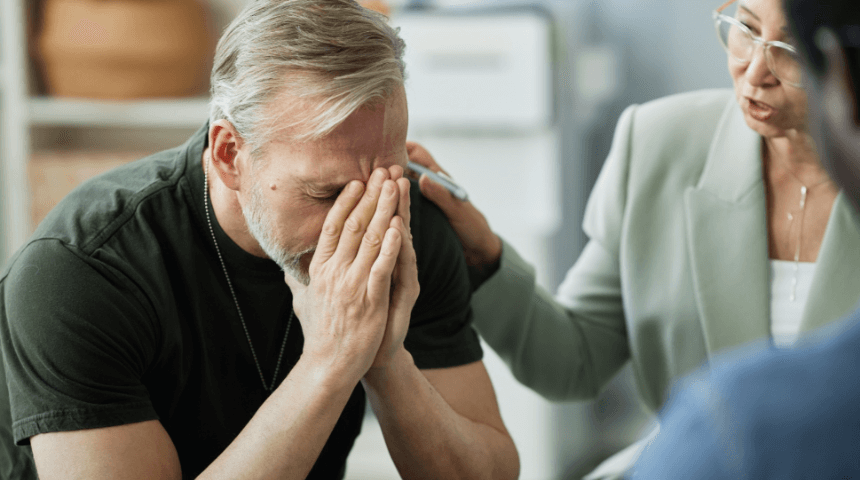Seven hours of uninterrupted sleep — that’s a lovely goal. Once you hit the perimenopause years, though, a slumber that perfect is hard to achieve.
A few simple steps will help.
The Sleep-Menopause Connection
Once your body begins the menopausal process, you’re likely to sleep less soundly, at least sometimes. That, in turn, will leave you dragging the next day. The changes come in stages.
- Perimenopause — In general, you’ll start having sleep disruptions as your body eases into perimenopause, the handful of years before your reproductive system fully tapers off. More than 45 percent of women struggle with sleep during this time, likely because the body starts making less estrogen, which affects your entire system.
- Menopause — Sleeping soundly will continue to elude you through menopause itself, when you stop menstruating for a full year. A surge of discomfort known as hot flashes is a common symptom; hot flashes are likely to wake you up, possibly covered in sweat, hence the nickname “night sweats.” As many as 85 percent of American women have hot flashes at some point.
- Post-menopause — The hot flashes will eventually subside yet sleep struggles might remain. More than 60 percent of women in this category have trouble falling asleep, toss and turn during the night, and worry regularly about life issues and about not sleeping. Restless leg syndrome surfaces during post-menopause. That’s when your legs jerk involuntarily while you’re lying still.
Your body starts making less estrogen as you reach each of these milestones. That in turn leads to changes in your brain, biological clock, self-cooling processes and even mood — all physiological changes over which you have little control.
When the struggle to fall and/or stay asleep happens chronically rather than occasionally, it’s labeled “insomnia.”
Simple Steps To Get Better Sleep
Maybe you turn off the lights and, 20 minutes later, you’re flipping, flopping, even dealing with a loop of anxious thoughts. Start with easy-to-make changes:
- Walk out of the bedroom — The bedroom is meant for sleeping and sex, not worrying. Change your venue. Sit on the sofa and read from a book, magazine, newspaper or e-reader — preferably something dry and boring. Avoid smartphones, tablets and TV, as they emit a blue light that might mess with your sleep rhythms. Return to the bedroom when your eyes start closing.
- Drink less — While it’s crucial to always be hydrated, curtail your beverage consumption starting an hour or two before bedtime. Take in your quota of water, juice and tea, for example, throughout the day, through dinner. If you do want a beverage, consider naturally caffeine-free herbal tea; some are made with ingredients that may induce sleepiness, such as chamomile and lavender. Warm milk has a similar effect.
- Avoid the tobacco temptation. Even if you smoke cigarettes, stop awhile before turning in for the night.
- Cut down on alcohol — Studies show that spirits can hurt your sleep. Wine and other beverages containing alcohol might make you feel tired, but they’re linked to tinkering with your normal sleep cycles and even waking you up in the middle of the night. Do keep water by your bedside in case you’re thirsty during the night.
- Try low-tech tactics — Wear a sleep mask to cut out light. Spritz a calming fragrance into the air. Turn on repetitive meditation music. Try deep-belly yoga-style breathing in and out the nose.
When To Call a Doctor
If your sleep is troubled regularly, it might be time for more aggressive action.
- Get checked for sleep apnea — Plenty of women snore or jolt themselves awake while sleeping for other reasons. If the cause is sleep apnea, where the air has trouble getting through, using a sleep machine or wearing a custom mouthpiece might help. A professionally assessed sleep study will pinpoint your situation.
- Try cognitive behavioral therapy for insomnia — This form of therapy, also called CBTI, teaches how to set yourself up for a peaceful sleep free of negative thoughts. That in turn can lead you to sleep better and awaken feeling more refreshed. Another therapy called sleep restriction therapy, or SRT, has similar effects; it focuses on spending time in bed only when your mind and body are really ready for slumber.
- Get hormone replacement therapy — If nothing else works, you might try hormone replacement therapy. It involves adding hormones to your body to alleviate extreme menopausal symptoms. Talk to your OB-GYN about it.
Begin tackling sleep challenges by setting yourself up for success. Condense all the basic tips into a nightly routine: Avoid the bedroom until bedtime. Keep away from devices with blue light for an hour beforehand. Settle in with an empty bladder. And if you’re still wide awake 20 minutes later, step out of the room and do a quiet, non-electronic activity until you feel sleepy again.




